WEB EXCLUSIVE – JULIAN MORRIS ON MODERN INTIMACY, TRUMP’S ASSAULT ON FREE SPEECH, AND HOLLYWOOD SEX SCANDALS
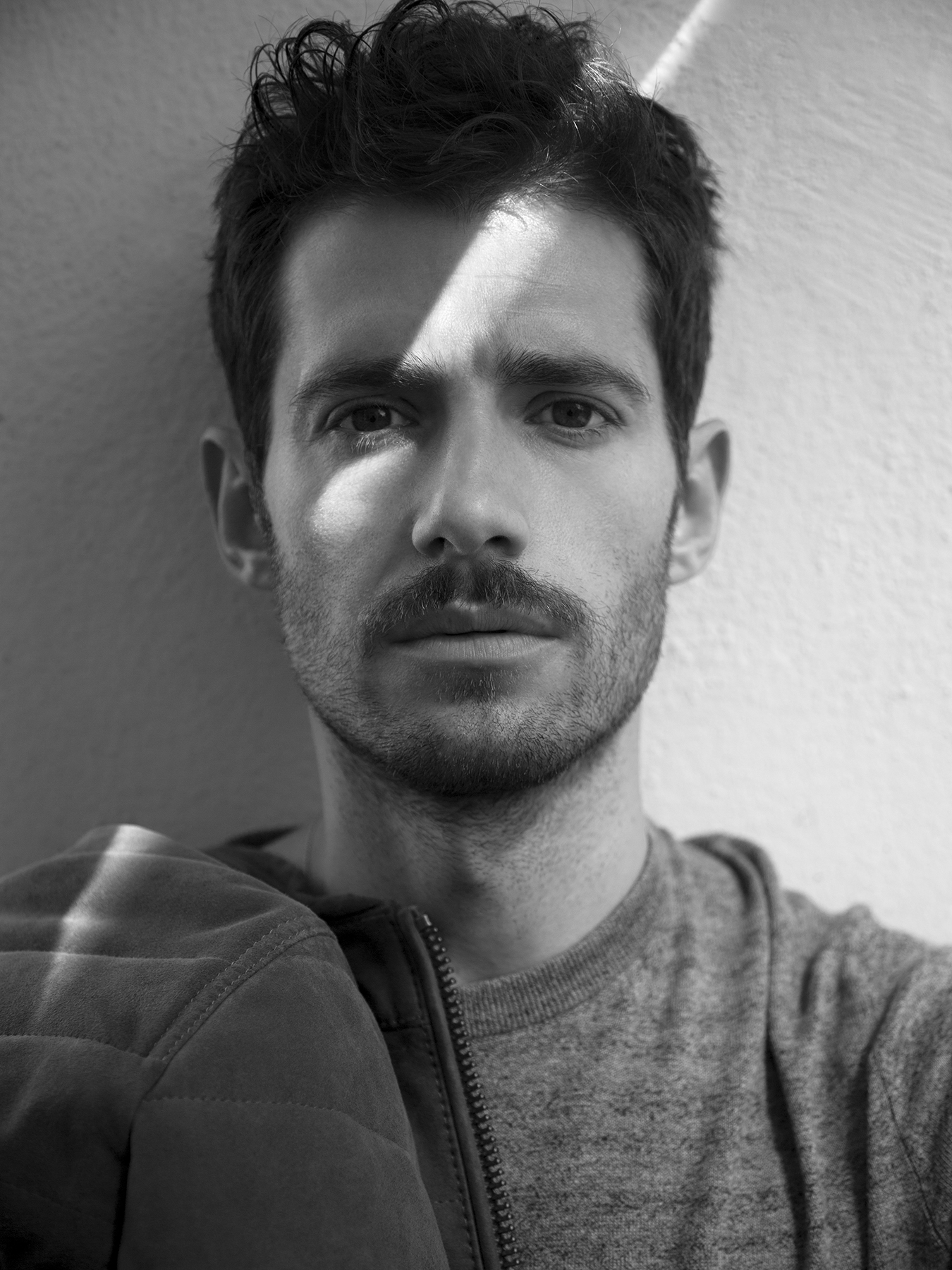
Photographed by Karl Simone | Styled by Alvin Stillwell @ Celestine Agency | Interviewed by Matthew Rettenmund
Michael Kors jacket and shirt
After three seasons with the Royal Shakespeare Company, he built a following with magnetic turns in horror fare like Cry Wolf (2005), Donkey Punch (2008) and cult-fave Sorority Row (2009). Though originally from England, he honed a foolproof American accent studying his Valkyrie (2007) co-star Tom Cruise.
Hot off a role on New Girl (2014-2015) and a return to the ABC Family teen drama Pretty Little Liars as Dr. Wren Kingston this year, just in time for that series’ sign-off, he appears to be making a clean break with less challenging roles, stunning in this summer’s British miniseries Man in an Orange Shirt as a gay man navigating empty hookup culture who discovers his grandfather was himself closeted — and had far more serious roadblocks to maneuver in the ‘40s.
Continuing his pattern of upward mobility, he is currently playing Watergate lid-blower Bob Woodward in Mark Felt: The Man Who Brought Down the White House, and will next be seen in a new film adaptation of Little Women.
His good looks have made him an easy casting decision, whether in genre flicks or on PLL, but he has always given layered performances that rise about what’s on the printed page, which may be why he’s managed to work with Carrie Fisher, Vanessa Redgrave, Liam Neeson and Dame Angela Lansbury. Unsurprisingly, in his Iris Covet Book interview, he was similarly complex, speaking comfortably about politics, the abuse scandals sweeping Hollywood, and his sex-symbol status.
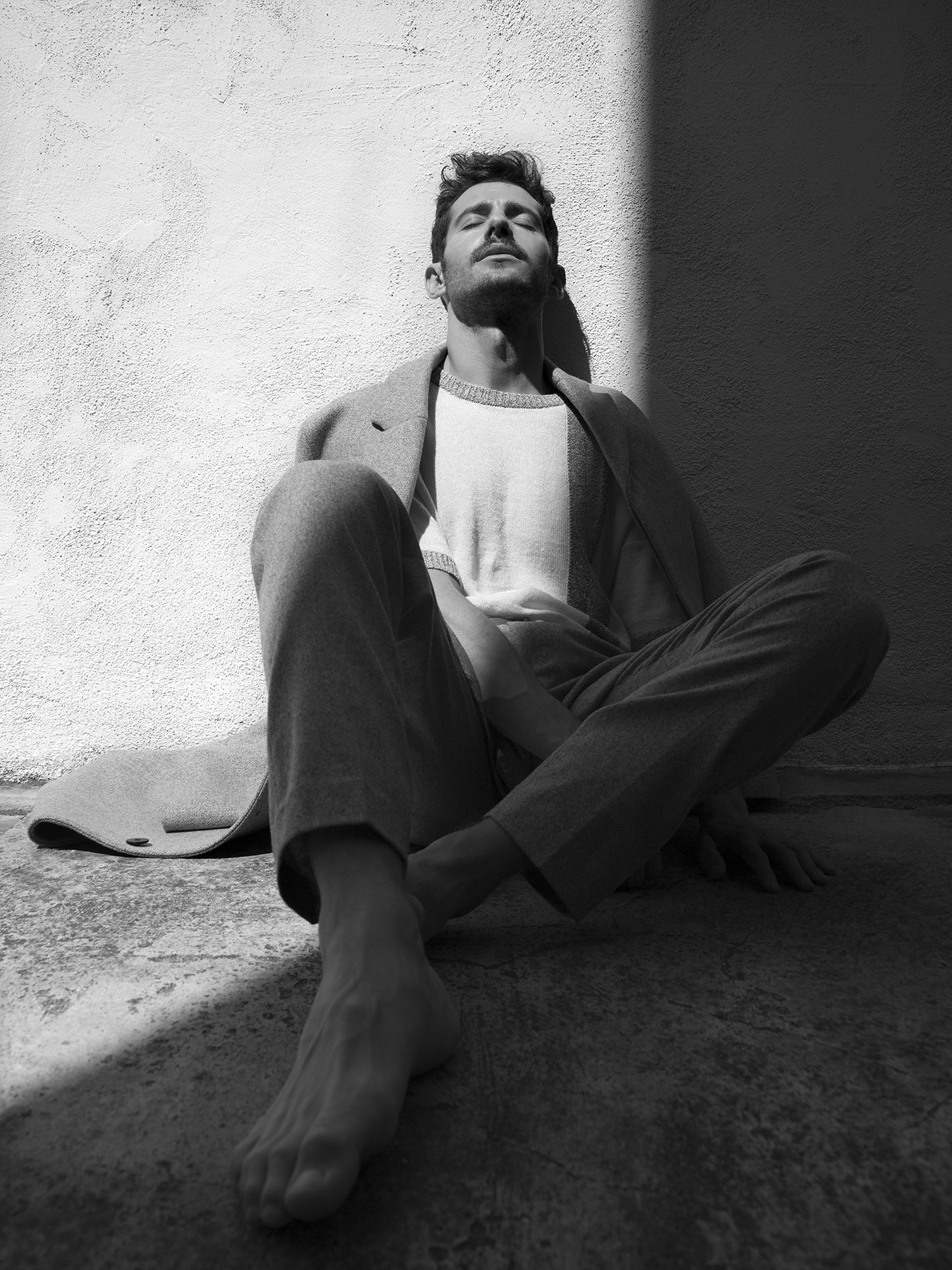
COS trench coat and trousers, Jacob Holston shirt
You started with some very intense training at the Royal Shakespeare Company. How did that stage training compare to your Hollywood experience?
Never at any point did it feel intense — it was just fun! I think what I learned in that time was that it’s about teamwork and the importance of the company and that it takes many, many people to build a production. When I got to America, I starting doing film and TV, and film work is very different, but in terms of what you do as an actor, the approach is the same. I’m lucky that as a teenager it was fun — and it still is.
You soon had a following for doing suspense and horror films like Sorority Row and Donkey Punch — are you naturally attracted to darker roles like that?
It’s not the genre. As long as the character has many layers and is interesting and challenging, that’s what I’m drawn to. I really dig horror. Some movies I’ve seen the last couple of years — The Witch (2015) and Under the Shadow (2016) — I love how they utilized horror to tell a bigger story. I’m in talks right now with a director named Kieran Evans, who I worked on Kelly + Victor with, to do a psychological horror.
There was a lot of psychological horror of a different type going on in Pretty Little Liars! Did being a part of PLL expose you to a whole new level of fandom?
Yeah, that happened. It was a really fun job. It wasn’t the most challenging work, but I had a really enjoyable time doing it from the get-go. I met one of my best friends on it, Ian Harding, and the girls and I always got along great. I remember at the time when I got the role I was supposed to go on this big trip to Africa and it was like, “Am I going to delay this trip or play this role in this pilot that may or may not go?” I wasn’t fully committed to the pilot and looked into who was making it, and it was Alloy Entertainment, who’d done tons of really successful shows, and Marlene King, whose work I really enjoyed. My gut told me that it would go, it would be special, and do well, and it did.
I never signed an option agreement with the show, despite one being offered, because I loved the people and I believed in the project, but I definitely always had an eye toward wanting to do more challenging material. The first few months of shooting that show, I was also shooting My Generation (2010-2011) in Austin, TX with Noah Hawley and Warren Littlefield. It was one of those shows where the ratings were not great. They’d be amazing now, but back then, they weren’t good enough and it was ripped off the air. Noah Hawley and Warren Littlefield went on to make Fargo (2014-present).
You left PLL and then returned this year for the final season. Was that strange leaving and coming back?
It wasn’t a strange thing; it was familiar. I continued to see and hang out with the people in the show. What was great was that in that time in-between I’d done work I was really proud of, in Hand of God (2014-2017) and New Girl and Kelly + Victor, and I’d told them I wanted to come back for the fans.
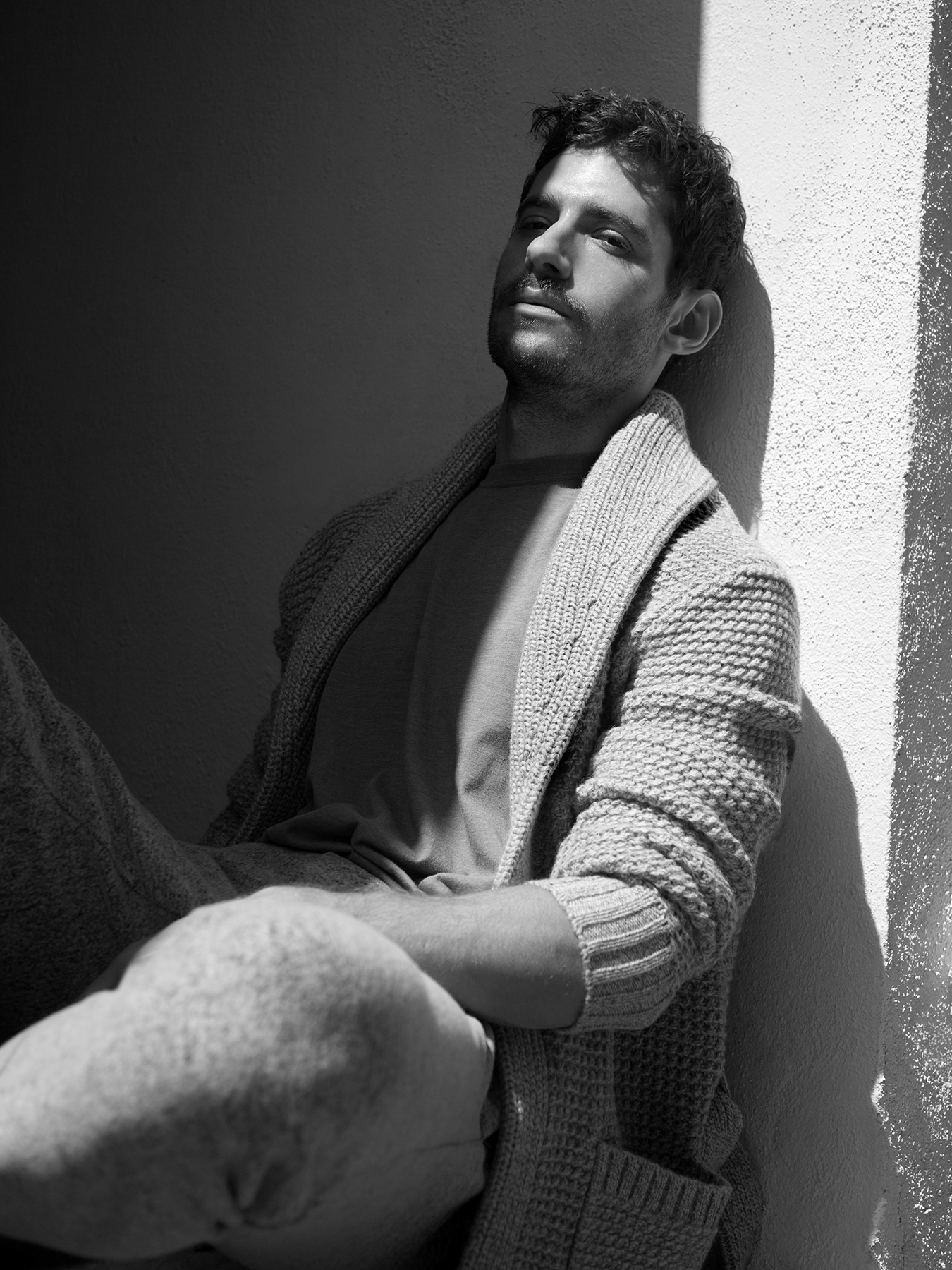
Banana Republic cardigan, Slow Build Heavy Grind shirt, Wings and Horns trouser
The great thing about that project is that once you’ve done it, you could have two Oscars in the future, but there will always be a certain sector of people who will be like, “Oh, yeah — from Pretty Little Liars!”
You and my mom say the same thing. [Laughs]
You mentioned your trip to Africa, and I saw on your Instagram that you did eventually make it to Rwanda. What was that like?
I’ve always loved animals, and I had this incredible in Borneo when I was 18 working in an orangutan sanctuary and have wanted for years and years to see the gorillas in Rwanda. It finally happened last Christmas.
It’s utterly magical. What’s so magical about it is that you see another species that is so similar to us, so like us. They’re another species, and yet you have such a sense of their humanity — you see it in their eyes, you see it in the way they interact with each other, and you see it in the way they interact with you. It’s breathtaking, and you can’t help but leave a situation like that thinking we’ve got to do everything we possibly can to help these very close relatives of ours.
Seems like an amazing observational exercise for an actor.
You’re absolutely right. One of the powers of acting, or at least what drives me to it, and why I think it’s so important or can be so important, is how universal it is — I really believe that as different as we may be superficially from each other, and it really is a superficial thing, we all experience the same emotions and dream the same and hope the same and feel devastated in exactly the same way no matter our politics or our superficial identity.
You described Hand of God as a role of a lifetime because you admired Marc Forster, who directed Monster’s Ball (2001). It’s sometimes said you shouldn’t meet your idols.
I wouldn’t say that I have “idols” in terms of my industry, I just admire them deeply. I think one of my idols was Christopher Hitchens in terms of his work in human rights, in terms of his eloquence, in terms of his integrity — and I did get to meet him. It was the only time in my life where I was completely starstruck to the extent that I couldn’t speak! He was talking to me and I just remember I had this grin on my face. I think I was speaking to him — I couldn’t tell you what I said or even what he was saying to me, I was totally starstruck.
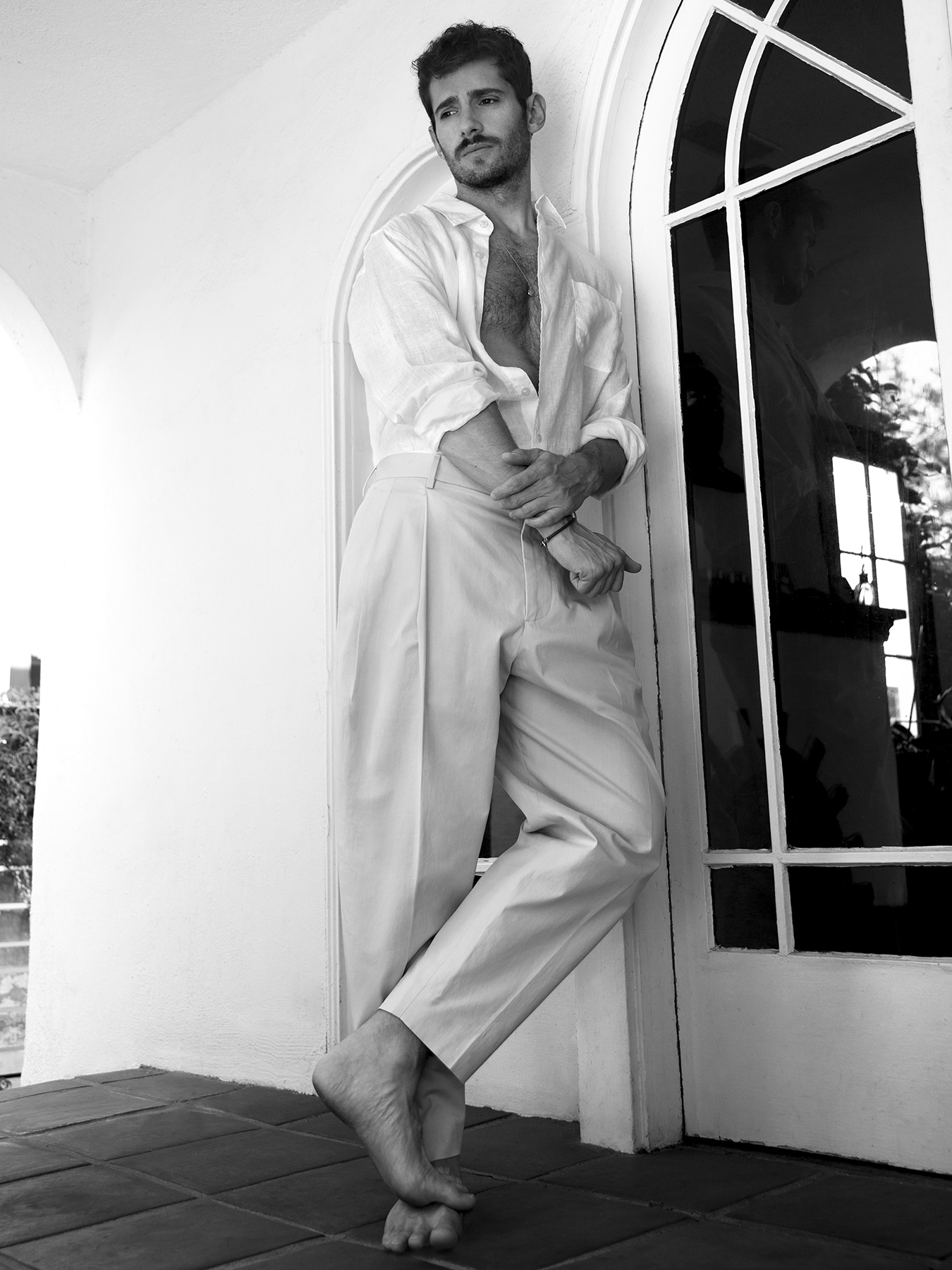
Vilebrequin shirt, COS trousers, Hermès bracelet
You’re currently playing Bob Woodward in Mark Felt: The Man Who Brought Down the White House. Why did you refer to it as “almost impossibly timed for its relevance”?
Clearly, we’re living in a time when institutions that support our democracy, that are fundamental to it, are under attack. I love what The Washington Post said: “Democracy dies in darkness.” It’s absolutely right. We need a functioning free press, and yet we have our leaders attack it daily and also of course institutions like the FBI, or our court system, our legal system, which I think is a really dangerous thing to do for politicians. I think when you use our court system to attack a political opponent or you defame an institution like the FBI when it is legitimately investigating something that is vital to our interest that it be investigated properly, that is when our institutions are under attack. In this film about Watergate, its relevancy today was very timely and striking.
What did you learn about how Woodward and Bernstein were looked upon by their fellow Americans while they were reporting these unpopular facts about Nixon. Were they similarly attacked?
I didn’t know, embarrassingly, nearly enough about Watergate going into it. It is incredible how similar it is to today, although they are very different. I think the level of attack today is really concerning and it’s coming from so many different places, not just the White House, that it makes our time, I think, so much more dangerous. Whereas back then, you had political parties that I think stood for something, today… I think they’re so… I don’t want to get too into politics, but I think at least back then you had really good people who could withstand an attack on democracy in many different places, and I think that today, it seems that we’re really wanting for good people in our legislature, and that’s concerning.
In terms of the role, it was fascinating to me to see how someone as young as Woodward was at the time of his investigation could take on someone so much more powerful than him in Mark Felt, and sort of manipulate him as any good journalist does to acquire information that would eventually bring down a government. That was an incredible discovery to look into Bob Woodward’s history to see how he might have been changed by fame.
Did Bob Woodward do a courageous thing? I think he was doing his job and was driven by his personal destiny, and that’s how I wanted to play him.
It was really an incredible time in my life making that project.
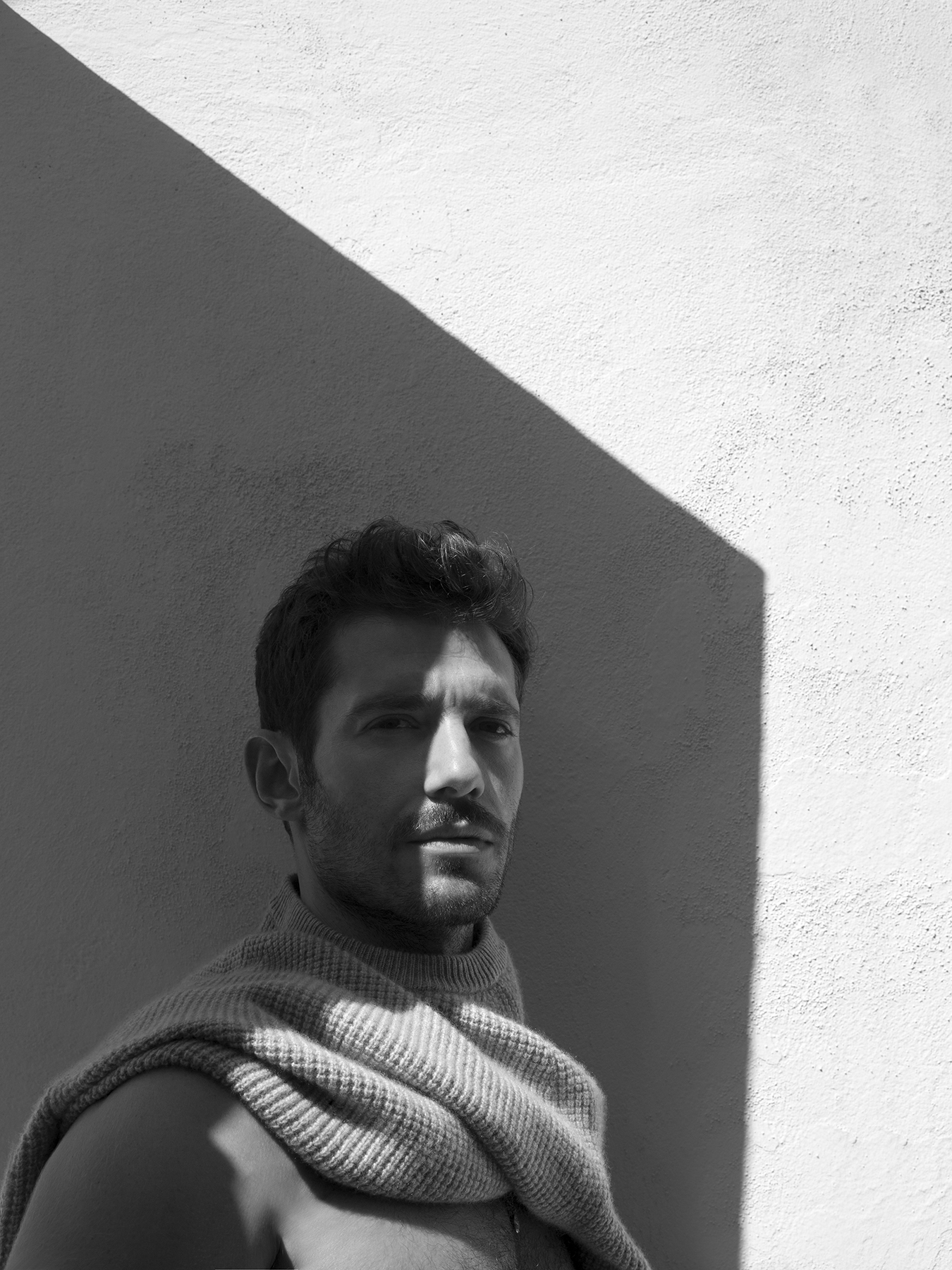
Ralph Lauren sweater
Your miniseries that aired in the UK in August, Man in an Orange Shirt, is another look back at a very different time. You play a gay man struggling with relationships who discovers his grandfather was gay and closeted in the ‘40s. Aside from working with the legendary Vanessa Redgrave, who I’m going to come back to, what did you find most compelling about the project?
There’s a number of things. I guess the first thing was the story. I think it showed something that I think is really important in society that should be revealed, and I think that any great film or artwork has that imperative to do so. It was this character that I found so moving and painful to read on the page and thinking how I might play him and thinking, “I have to play him,” and then of course the joy of working with Redgrave. But it really was a story that I felt was really important to tell.
It’s incredible to think that things were so different not so long ago.
It’s incredible how things have really changed and also how they haven’t. What was really interesting to me was to see how — it’s a multigenerational story— in the first episode it looks at what it was like to be a gay man in the ‘40s, where society deemed that an impossibility and a criminal offense. You have a man who falls in love and is denied that love by society, and then compared to my character, which takes place today in our time, where you’re able to get married and have a job and be yourself, at least in most places, although certainly not everywhere, and yet the shame that my character has carried with him all his life forced upon him by the relationship he has with his own grandmother, played by Vanessa Redgrave, makes him his own jailer. He is the one who, because of his shame, the shame that has been put upon him, his repression, denies himself love. I can’t think of anything more important in life and more sacred than that — to be loved and to allow yourself to be loved.
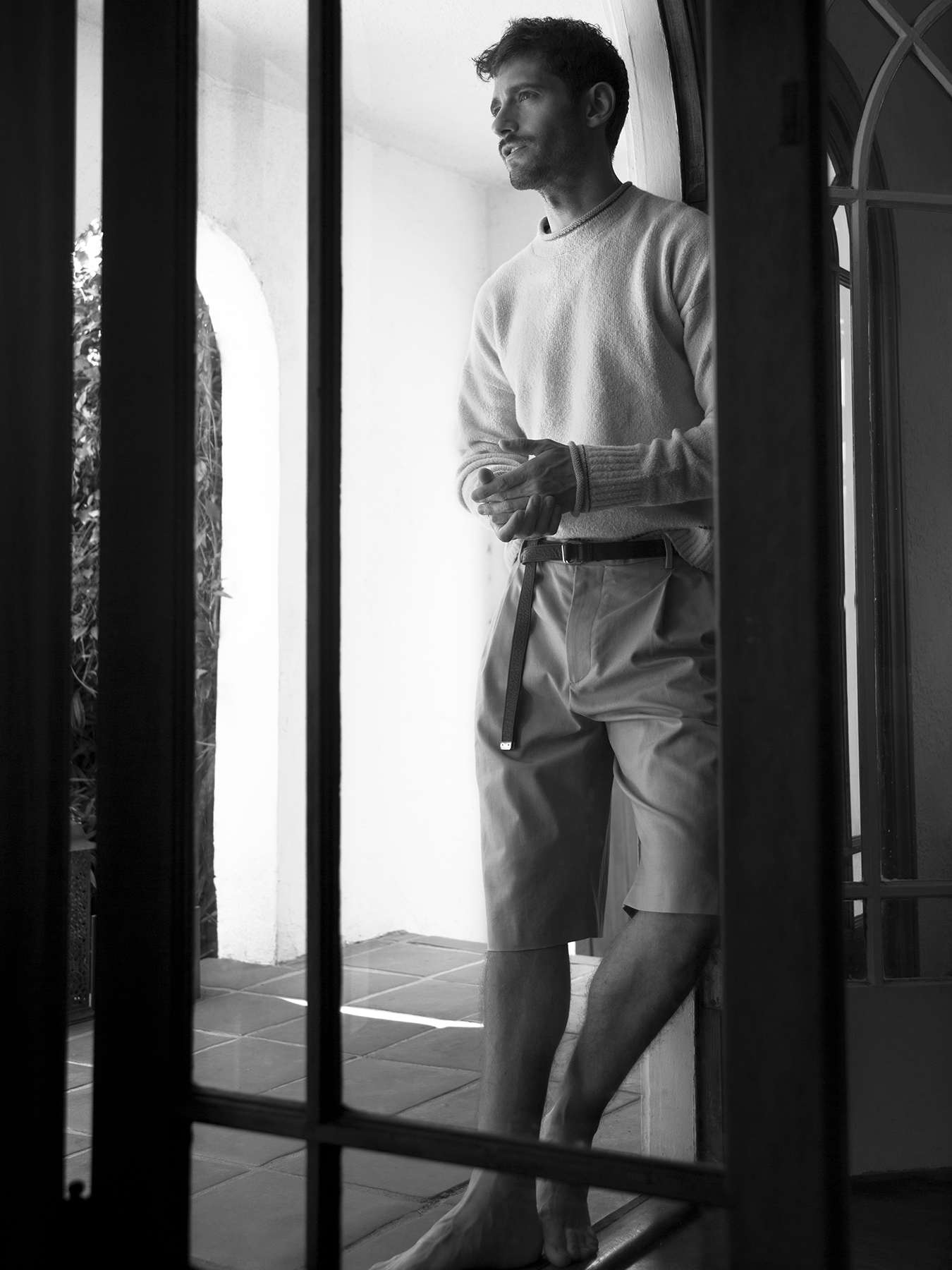
3.1 Phillip Lim sweater, COS shorts, Michael Kors belt
My impression is that Man in an Orange Shirt is very much about intimacy. What do you think about social media? Is it a doubled-edged sword because while in some ways we’re able to be much more connected much more easily, we question whether it’s a true connection?
One thing about social media and the internet is that it does connect. It connects people together and people who certainly might not feel a ready connection in their small environments. So, if you’re in a small town and put-upon, you can reach out and find someone who’s like you and there’s a strength in that. You can reach out and find people who are similar to you and then find people who are not like you and that connection is wonderful, too.
The challenge, though, is that it’s such a new technology and the change is happening so rapidly that its challenges are here and yet we’re taking too long to adapt to them. Before, when change came about, we had time to adapt to it, and yet now clearly we’re finding that hard to do. You see how the promise of social media to be this great connector, to be great for democracy, for freedom of speech, was in fact not so great in the last election or in Europe and is no doubt being utilized as a tool of propaganda by the enemies of free speech and liberalism and democracy… and we didn’t even know it! It was happening and yet we allowed it to happen because we didn’t know it was happening. Now, the conversation is about how we adapt to it. How do we prevent the manipulation of a tool of such potentially good things to be used against us?
I’m really against identity politics. I don’t like the atomization of it where we’re just individuals living alongside each other without any connection. I think that type of atomization leads to the populism that we’ve been seeing, certainly in Europe, and is the source of the dysfunction in society that I think we have.
Speaking of change, you’re in an industry going through turmoil due to sex-abuse allegations. Is it an exciting time? A scary time?
I have two feelings about what’s happening right now, and of course it’s not just happening in our industry, it’s happening across the board. I’m devastated reading the stories of these women and men who have been preyed upon. But also, there seems to be a cultural shift that hopefully will prevent these sorts of acts from happening again. I think if you look at any shift in terms of a progression of society, whether it’s civil rights or gay rights, the liberalization of society, it’s a cultural one and it’s a really positive one. So I think if we can come out of this time with a change, determined to really help people feel open enough to tell their story, we can hopefully stop people from preying on the vulnerable.
Chris Evans has talked about a provocative shoot he did for Flaunt, saying his publicist was against it because it showed too much skin. You show a lot of your body in Man in an Orange Shirt, and also did a revealing shoot a few years ago that was every gay man’s screensaver for a while — what’s your approach to nudity, whether on film or for a photo shoot?
I’m not fazed by nudity. I don’t have a hang-up about being naked. In terms of work, it has to serve the story and the director’s vision or it becomes gratuitous.
Back to Vanessa Redgrave.
Genuinely, she is amazing to work with. I love and adore her. We got really close making Man in an Orange Shirt, in part because the material was so intimate, and all her scenes were with me, long days, just the two of us. I really admire her, I admire her of course for her talent, her intelligence, her silliness. She’s so silly on set in a fun, dramatic, and really funny way. I adore her. I loved being with her. As an actress, she is formidable. She is fierce. She is highly intelligent. She picks apart the script like only a truly great and truly intelligent actor can. You’ll do takes and she’ll be good — she’s always good — and then suddenly it will connect and something amazing will happen! And I’m like, “Fuck! How do I match that? How do I bring my game up to her level?” You’re pushing yourself and she’s pushing you and it’s wonderful. The other great thing is — and this isn’t true of every big actor that I’ve worked with — she is always there for you. She is giving her all. She is always there for you.
Leaving Pretty Little Liars, the dream was to work with people like this and be challenged. This is the dream.
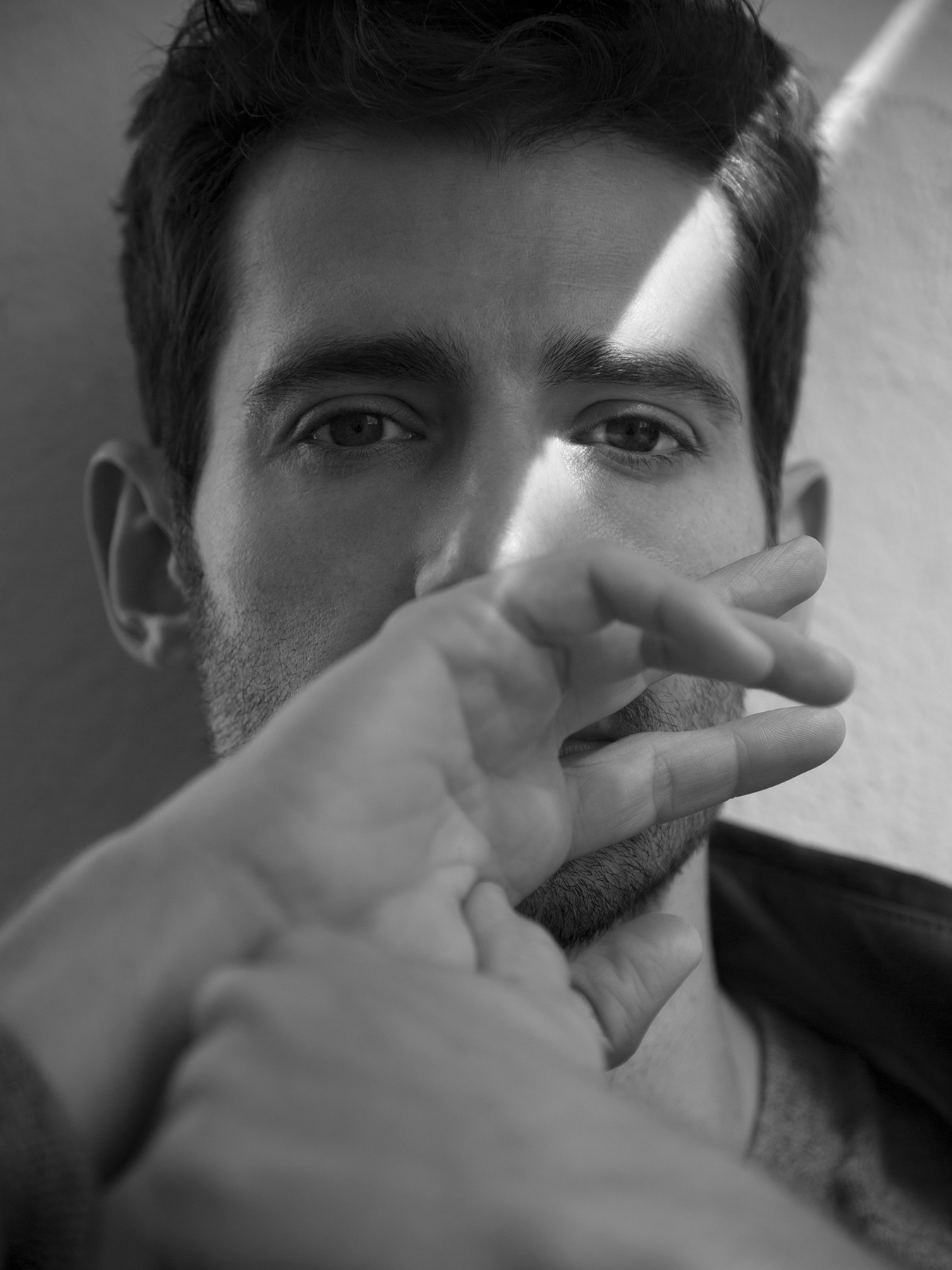
Michael Kors jacket and shirt
Grooming by Mira Chai Hyde at The Wall Group using Caudal Skincare Profound Beauty Hair
Special thanks to Simon Shwartz
